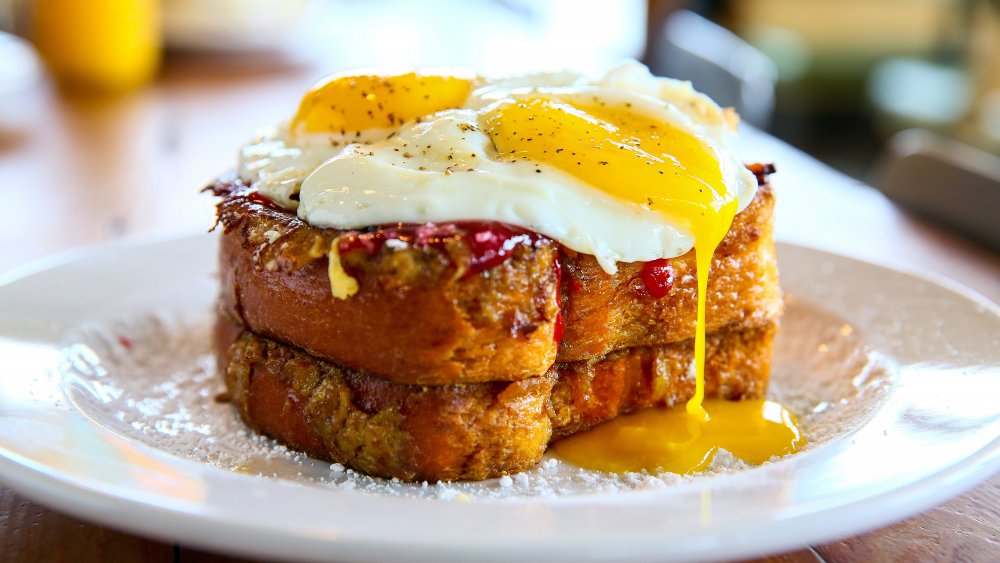What You Should Know About Eating Runny Eggs
While some people have an aversion to runny eggs, most of us can't resist a nice fried egg – just perfect for Sunday morning toast-dunking. If you're in the latter camp, before you dive into your next soft boiled, poached or sunny-side up, you might want to consider the risks of partaking in those rich, oozing eggs.
That risk, of course, is food poisoning. Eggs can carry the bacteria salmonella. Salmonella causes an infection in humans called salmonellosis, which is characterized by diarrhea, fever, and abdominal cramps. While most people will recover from the infection without treatment, it can be a particularly nasty form of food poisoning for infants and young children, the elderly, or those with weakened immune systems, sometimes requiring hospitalization (via U.S. Centers for Disease Control and Prevention (CDC). According to the U.S. Food and Drug Administration (FDA), about 79,000 cases of foodborne illness and 30 deaths each year are caused by eating eggs contaminated with salmonella.
The only foolproof way to kill off salmonella in an egg? Cooking it to a temperature of 160 degrees Fahrenheit. In other words, no runny yolks.
Pasteurization is the key to safe, soft yolks
Here's the good news for lovers of eggs benedict and other raw or undercooked egg recipes (including tiramisu, Caesar dressing, and homemade eggnog or mayonnaise). Purchasing pasteurized eggs greatly reduces the chance of getting an egg that contains the nasty salmonella germ. According to the American Egg Board, egg processing facilities pasteurize eggs by rapidly heating them long enough to kill the bacteria, but not long enough to cook the egg. The CDC recommends choosing pasteurized eggs any time your recipe calls for raw or undercooked eggs, or when you're serving eggs to young kids, the elderly, pregnant women, or the immunocompromised.
The downsides to purchasing pasteurized eggs: They're not as easy to find as unpasteurized eggs, and they're more expensive. A dozen large Davidson's Safest Choice Eggs, for instance, costs $4.99 (via Mercato), versus 88 cents for Aldi's unpasteurized eggs (via Clark Media). If you're using unpasteurized eggs, exercise caution. Never buy unrefrigerated eggs, always keep eggs refrigerated until cooking, and cook your eggs to 160 degrees and until the yolks are firm. With any eggs, always throw out any that are cracked (via U.S. Department of Health & Human Services).
Love eggs? Don't let fear of food poisoning stop you from indulging. Purchasing and preparing carefully will keep you and your family safe, healthy and well fed.

